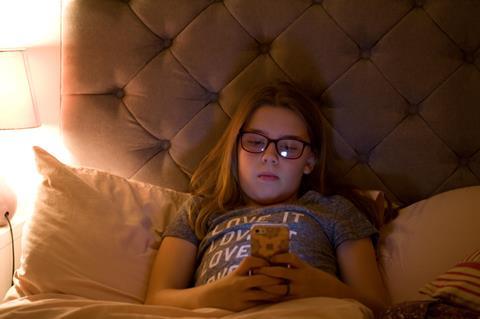Anna Hill looks at the effect of social media on our children, and says, ’Any government raising essential questions about our children’s safety and mental health, particularly as they navigate the complex world of online connections, identity, and peer pressure, is on to a win, in my opinion.’

“You can’t go back and change the beginning, but you can start where you are and change the ending.” C.S Lewis.
The Australian government is looking to ‘change the ending’ for kids’ mental health. It is considering raising the minimum age for social media use between 14-16 and potentially requiring parental consent for anyone under 18.
As a mother of three and someone deeply involved with the Smartphone Free Childhood grassroots movement, I have long been concerned about the impact of smart devices and social media on our children’s development. I have been profoundly impacted by the many personal stories of children using smart devices, leading to being bullied, meeting strangers online and feeling increasingly lonely. Author of The Anxious Generation, Jonathan Haidt says, ‘A (smart device) phone-based life generally pulls us downward. It changes the way we think, feel, judge and relate to others.’
Jonathan Haidt says, ‘A (smart device) phone-based life generally pulls us downward. It changes the way we think, feel, judge and relate to others.’
I can’t help but think this is not quite Jesus’s desire for our kids’ lives.
As Christian parents and carers, we too have an opportunity to raise our kids in a world that inhabits the Bible’s truths: 2 Timothy 1:7 says: “For God has not given us a spirit of fear, but of power and of love and of a sound mind” and 1 john 1:7 : “If we walk in the light, as he is in the light, we have fellowship with one another…”
These verses speak to us as parents and carers, encouraging us to challenge social norms that have gone astray. As Jonathan Haidt puts it, “Those who spent more time in face-to-face activities, such as religious communities, were the healthiest” (pg 14).
Dame Rachel de Souza conducted research asking children between the ages of 10-12, when they first encountered online violence or degrading pornographic images. Their response was that it happened when they got their iPhone. She says these responses are ubiquitous throughout the UK and notes that teenage girls are unhappier than ever. I will have a teenage girl in a few years. I do not want this to be true for her.
I will have a teenage girl in a few years. I do not want this to be true for her.
Dame de Souza associates this sadness with social media use and emphasizes the need to establish boundaries to better protect our young people. The Australian government has seen this in its young people and is implementing boundaries. As Prime Minister Anthony Albanese said, ‘It’s about letting children have a childhood’, adding, ‘there’s nothing social about some social media companies taking our young Australians away from real friends and real experiences.’
I am currently reading Jonathan Haidt’s book The Anxious Generation. It is full of hard-to-swallow facts and data about the ‘surge of suffering’ among Gen Z, combined with his inspiring desire to bring back a ‘play-based childhood’.
During an experiment conducted by Times journalist Decca Aitkenhead, ten teens were asked to give up their smartphones for two weeks. One of the girls poignantly reflected on her happier childhood pre phone: “We did have a childhood… without social media. I’m 15 now. Do you want to know why I still sleep with stuffed cuddly toys? To try and get back to how I used to feel when I felt happy and free.” Decca Aitkenhead
Read more on social media
A Christian content creator explains what on earth is going on with social media at the moment
Have you heard of BeReal? The new social media app that Christians are loving…
As faith-driven parents and carers, we can consider this information alongside the Bible. Avoiding sadness, anxiety, loneliness, bullying, and online addiction is possible by encouraging a life of walking in the light and fostering fellowship with one another.
Any government raising essential questions about our children’s safety and mental health, particularly as they navigate the complex world of online connections, identity, and peer pressure, is on to a win, in my opinion.
As well as this, there are some great groups around the world standing together to create change; as Jonathan Hadit suggests in his book, “Change is possible if we can act together”. Just this week Smartphone Free Childhood launched a parent pact which brings parents together in their communities and schools to do just that – bring change together.

































No comments yet